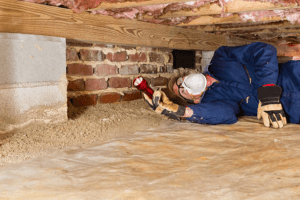Owning a kitchen is a huge responsibility. Not only do you have to worry about cooking food, but you also have to make sure that the kitchen equipment is in good condition. If you don’t properly maintain your kitchen equipment, it can lead to all sorts of problems. In this blog post, we will discuss everything you need to know about kitchen equipment maintenance. We will cover topics such as how to clean different types of kitchen appliances, how to repair common problems, and how to prevent damage from occurring in the first place.
Table of Contents
- 1 Importance of Cleaning and Maintaining Kitchen Equipment
- 2 How to Repair Common Kitchen Equipment Problems
- 3 Preventing Kitchen Equipment Damage
- 4 Keep a Checklist of Maintenance Tasks to Ensure Nothing is Missed
- 5 Sanitizing Your Kitchen Equipment
- 6 Cleaning Your Kitchen Equipment After Every Use
- 7 Safety Tips to Follow During Kitchen Maintenance
- 8 Preventive Tips to Follow to Keep Kitchen Equipment in Good Condition
- 9 Ask for Help When Needed
- 10 Conclusion
Importance of Cleaning and Maintaining Kitchen Equipment
Cleaning your kitchen equipment is important for food safety and hygiene reasons.
It is also important because many kitchen appliances are made with sensitive materials that can be damaged by dirt or grease on their surface areas such as stainless steel and non-stick coatings.
When you’re cleaning your kitchen equipment, it’s a good idea to use a cloth dampened in warm soapy water instead of chemical cleaners which may cause damage.
If you’re having trouble cleaning an appliance, there are a few things you can do:
- Try using a different cleaner or detergent. Some cleaners work better on certain types of surfaces than others.
- If the dirt or grease is caked on, try soaking it in warm soapy water for an hour or two before scrubbing with a cloth dampened in the same solution.
- If you have to use chemicals (like oven cleaner), be sure they are safe for your particular appliance and follow all instructions carefully.
- Remove any food residue from pots and pans after cooking by scraping off any burnt bits with a metal spoon or spatula before washing them in hot soapy water.
When cleaning kitchen equipment, be sure to follow the manufacturer’s instructions because each appliance may require different care.
Some of these instructions include using only non-abrasive cloths or pads while wiping down surfaces and never submerging corded appliances in water.
How to Repair Common Kitchen Equipment Problems
If your kitchen appliances are not working properly, it’s usually because there is a problem with the electrical wiring or mechanical parts.
In most cases, you will need to take the appliance to a technician for repair.
If you cannot find a professional to work on the problem, try these steps:
Check if any fuses have blown. If so, replace them with new ones.
Replace any damaged wiring by removing old wires and attaching new ones in their place using wire cutters or pliers as needed. Plug it back into an outlet to see if it works.
If the appliance still doesn’t work, take it apart and try to determine what is wrong. Once you know what the problem is, you can try to fix it or find someone who can help you do so.
Preventing Kitchen Equipment Damage
There are a few things you can do to prevent kitchen equipment from being damaged in the first place.
One of the best ways to do this is by using proper care and handling techniques.
Here are a few tips:
- Never use metal utensils on non-stick surfaces as they can cause scratches.
- Avoid putting pots and pans into the dishwasher unless they are specifically designed for dishwasher use.
- Never place hot cookware on unprotected surfaces such as countertops or tables.
- When stacking pots and pans, be sure to put the heavier ones on the bottom and use a potholder to avoid burns.
If you follow these tips, you can help keep your kitchen equipment in good condition for years to come.
Keep a Checklist of Maintenance Tasks to Ensure Nothing is Missed
It’s a good idea to keep a checklist of regular maintenance tasks to make sure you don’t miss anything. This will help ensure your kitchen equipment is always in good working condition. Some of the things you should include on your list are:
- Cleaning all kitchen appliances according to manufacturer’s instructions.
- Checking electrical wiring for any fraying or damage.
- Checking mechanical parts for wear and tear as well as rust corrosion.
Sanitizing Your Kitchen Equipment
It’s a good idea to sanitize your kitchen equipment regularly to prevent foodborne illnesses. Here are some easy steps you can take:
Wash the cookware with hot soapy water after use and then dry thoroughly before putting it away. This will help remove any leftover grease from cooking or cleaning up meals.
Sanitize your kitchen equipment by using a sanitizing solution or spray. This is especially important if you have small children who may touch these surfaces without realizing it could make them sick. You can even buy special products designed specifically for this purpose such as sanitizing wipes that are safe to use on food preparation surfaces.
Cleaning Your Kitchen Equipment After Every Use
After you’ve finished using any kitchen equipment, it’s important to clean it before storing it away. This will help ensure that all residue is removed and prevent stains from forming over time. Here are a few tips for cleaning kitchen equipment:
- Wipe down all surfaces with a damp cloth and then dry them thoroughly.
- Use a non-abrasive cleaner or detergent to clean any stubborn dirt or stains.
- Rinse cookware with hot water and dish soap to remove any food particles. Be sure to rinse until no suds remain before drying thoroughly.
- Use a soft cloth dampened with white vinegar and water mixture on stainless steel surfaces as an alternative way of cleaning these items without harsh chemicals. You can also use club soda for this purpose instead if you prefer not to use vinegar at all in your home!
- Ovens should be cleaned at least once a month, use a baking soda paste and water
- Stovetops should be cleaned every week; for stovetops, use a vinegar and water mixture or a commercial degreaser.
- Refrigerators should be cleaned out every six months with an all-purpose cleaner or dish soap solution; make sure to remove any food particles from inside before starting this process so you don’t accidentally swallow them!
- Microwaves must always have their door open after use so they can cool down properly before cleaning. Use a wet sponge and mild detergent to clean the interior and exterior of the microwave.
Now that you know how to properly maintain your kitchen equipment, it’s time to get started! Following these tips will help keep your appliances in good condition for years to come.
Safety Tips to Follow During Kitchen Maintenance
While you’re performing kitchen equipment maintenance, it’s important to remember to always practice safe habits. Here are a few tips to keep in mind:
- Never place hot cookware on unprotected surfaces such as countertops or tables.
- When stacking pots and pans, be sure to put the heavier ones on the bottom and use a potholder to avoid them taking a tumble.
- Always unplug kitchen appliances before cleaning them or performing any repairs.
- Be sure to read the manufacturer’s instructions before cleaning or repairing any kitchen equipment.
- If you’re ever in doubt about how to safely clean or repair an appliance, it’s best to consult a professional. They will be able to help you with all of your maintenance needs and ensure that your appliances are always in good working
Preventive Tips to Follow to Keep Kitchen Equipment in Good Condition
In addition to performing regular maintenance on your kitchen equipment, there are a few preventive steps you can take to help keep them running smoothly:
- Avoid using harsh chemicals or abrasive cleaners when cleaning. These can damage the surfaces of your appliances and make them less effective over time.
- Don’t leave cookware sitting on the stovetop or in the oven for extended periods of time. This can cause them to become stained or corroded.
- Make sure to store kitchen appliances in a dry, cool place when not in use. Excessive moisture can damage electrical components and shorten the life of your appliances.
- Dry all dishes and utensils completely before storing them away
- Regularly checking for damage or wear on kitchen equipment can help you catch problems early on and prevent expensive repairs down the road
- Keep your kitchen stocked with supplies for regular maintenance, including rags, sponges, window cleaner, all-purpose cleaner, oven cleaner, etc.
Ask for Help When Needed
There’s no shame in admitting you don’t know how to do something – especially when it comes to maintaining your kitchen equipment! If you’re not sure how to clean or repair an appliance, don’t hesitate to ask for help from a friend or family member. Or, better yet, contact a professional technician who can take care of everything for you.
Conclusion
Now that you know all there is to know about kitchen equipment maintenance, it’s time to get started! Following these tips will help keep your appliances in good condition for years to come. Remember to always practice safe habits when cleaning and repairing kitchen equipment, and don’t hesitate to ask for help if you need it. Have a great day!



